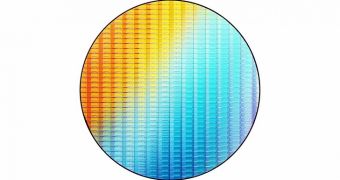Until now, Intel has been using its chip manufacturing facilities exclusively for its own needs, but its latest CEO, Brian Krzanish, wants that to change. And as it happens, TSMC might have just pushed some of its customers away.
The other day, we reported on the latest development at Taiwan Semiconductor Manufacturing Company, the one that rendered AMD and NVIDIA unable to release their next GPU architectures.
Well, at least not on the 20nm manufacturing process. TSMC is apparently having trouble with the technology, like it did with 40nm years ago.
Advanced Micro Devices and NVIDIA are unlikely to cut ties with the foundry, not after decades of using its facilities for chip production.
However, there are other clients that TSMC has, and which might be soured enough to the idea of waiting another year that they could consider alternatives.
Intel might just take away those customers, now that it has decided to open up some of its facilities to third-party clients.
Intel's case is a pretty curious one. The company is one of the 25 major names in the semiconductor fabrication industry, but it never makes chips for anyone other than itself. Not really.
Now, though, CEO Brian Krzanich wants to start taking orders, to establish a foundry service while still making its own CPUs.
After all, it has production lines that stay idle quite a bit, and if Texas Instruments and Samsung can get revenues from contracts with others, Intel should manage as well.
And as Intel already makes 22nm chips and should move to smaller nodes easily enough, it could charm away some of TSMC's clients after this latest mishap.
The only other potential alternative here is Globalfoundries, which is pushing into 14nm with Toshiba's help, but some have pointed out that GlobalFoundries rather spectacularly botched the 16nm node, so the world should probably be cautious about the supposed 14nm advancement.
Regardless, now that TSMC has faltered badly enough to force AMD and NVIDIA to totally redesign their architectures for compatibility with the 28nm node, Intel has a window of opportunity. Even if AMD and NVIDIA don't approach it for production contracts, others might. There are hundreds of companies in the world after all.
We're not certain how far along Intel's plans have come. Chipzilla only announced its foundry plans back in November, so it hasn't even been half a year. Definitely not enough to court anyone, so to speak.

 14 DAY TRIAL //
14 DAY TRIAL //